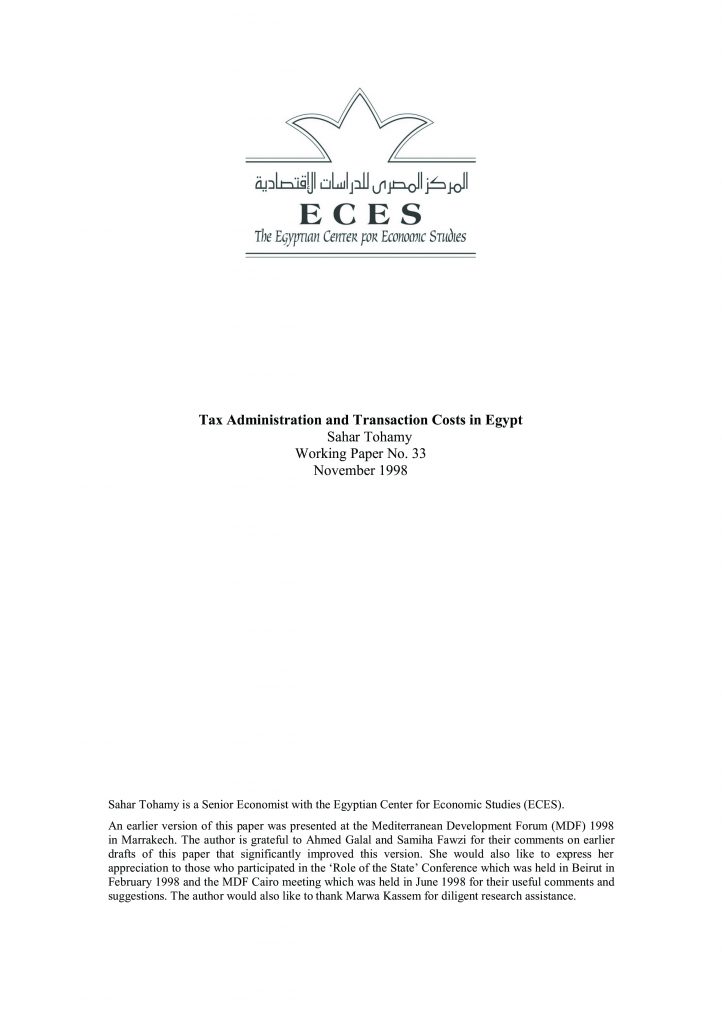Abstract:
This paper analyzes two problems with tax administration in Egypt: tax evasion and taxpayers’ high transaction costs in tax payment. The paper evaluates the magnitude of each problem in a comparative cross-country context. Empirical analysis suggests that tax evasion in Egypt is consistent, to a great extent, with the country’s economic and institutional conditions. Correspondingly, tax obstacles to private business, again similar to other countries, are ranked as the primary obstacle to doing business in Egypt. The paper then examines the tax payment ‘contract,’ or relationship between taxpayers and the tax authority in Egypt, and discusses three weaknesses in this relationship: the importance of private information, moral hazard and adverse selection. A critical element in tax administration reform in Egypt must focus on eliminating these weaknesses.

